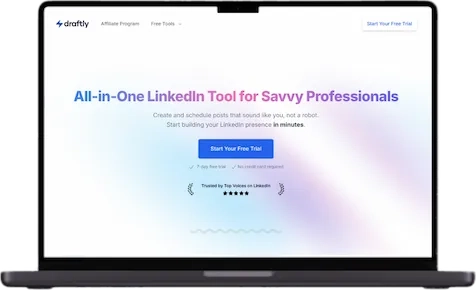Unlocking the World of Computer Science
Unlocking the World of Computer Science: Essential Courses and Learning Resources
In the ever-evolving landscape of technology, proficiency in computer science is a gateway to countless opportunities. Whether you're a novice eager to dive into the world of programming or an experienced professional seeking to expand your skill set, embarking on a journey of learning computer science opens doors to innovation and growth.
Introduction to Computer Science Courses
Computer science courses serve as the cornerstone of education for aspiring software developers. These courses, offered by prestigious institutions such as Harvard University and MIT, cater to individuals of all backgrounds, from beginners with no prior programming experience to seasoned professionals looking to refine their expertise.
Harvard University's CS50x
One of the most renowned introductory courses in computer science is CS50x, offered by Harvard University. Led by Professor David J. Malan, CS50x provides a comprehensive overview of the intellectual enterprises of computer science and the art of programming. Designed for majors and non-majors alike, the course covers fundamental concepts such as abstraction, algorithms, data structures, and software engineering. Students have the opportunity to delve into various programming languages, including C, Python, SQL, and JavaScript, as well as master essential web development skills such as HTML and CSS. With problem sets inspired by real-world domains such as biology, cryptography, and finance, CS50x challenges students to think algorithmically and solve complex problems efficiently.
MIT's Introduction to Computer Science and Programming Using Python
MIT offers a two-course sequence in computer science, with the first course focusing on programming using Python. This introductory course is designed to familiarize learners with computational thinking and equip them with the skills needed to tackle practical problems. Whether you're aiming to pursue advanced computer science studies or seeking to enhance your problem-solving abilities, this course provides a solid foundation. Featuring lecture videos, exercises, and problem sets, the course covers key topics such as Python programming, computational thinking, and data science. Regardless of prior programming experience, learners can easily transition to Python 3.5 and gain valuable insights into the world of computer science.
HTML, CSS, and JavaScript for Web Developers
For those interested in web development, mastering essential tools such as HTML, CSS, and JavaScript is paramount. This course offers a comprehensive introduction to web page coding, starting from the basics and progressing to advanced topics. Participants learn how to implement modern web pages with HTML and CSS, ensuring optimal user experience across devices. With a focus on responsive design and functionality, learners discover how to code web applications that adapt seamlessly to varying screen sizes. Additionally, the course provides a thorough understanding of JavaScript, the ubiquitous language of the web. Through hands-on projects and exercises, participants build fully functional web applications, leveraging AJAX to enhance interactivity and user experience.
FrontEnd Masters' Four Semesters of Computer Science in 5 Hours
In today's fast-paced world, time is of the essence. FrontEnd Masters offers a condensed yet comprehensive course in computer science, covering essential topics in just five hours. From algorithms and data structures to sorting and tree traversals, participants gain insights into key concepts essential for software development. Despite its brevity, this paid course provides invaluable knowledge and skills, making it a worthy investment for aspiring software developers.
Exploring Learning Resources: In addition to structured courses, a plethora of learning resources are available to enhance your understanding of computer science concepts and refine your programming skills. These resources cater to diverse learning preferences and provide valuable insights into the ever-expanding field of technology.
Online Platforms and Communities: Online platforms such as Coursera, Udemy, and Codecademy offer a wide range of courses in computer science, programming languages, and web development. From beginner-friendly tutorials to advanced specialization programs, these platforms provide flexibility and accessibility for learners worldwide. Moreover, participating in online communities such as Stack Overflow and GitHub enables individuals to collaborate, share knowledge, and seek assistance from experts in the field. By engaging with like-minded peers and industry professionals, learners can gain valuable insights and stay updated on the latest trends and technologies.
Books and Publications: For those who prefer traditional learning methods, books and publications remain invaluable resources for mastering computer science concepts. Authoritative texts such as "Introduction to Algorithms" by Thomas H. Cormen, Charles E. Leiserson, Ronald L. Rivest, and Clifford Stein, offer comprehensive coverage of fundamental algorithms and data structures. Similarly, "Computer Organization and Design" by David A. Patterson and John L. Hennessy provides insights into computer architecture and hardware design principles. By delving into these well-curated resources, learners can deepen their understanding of core concepts and gain practical insights into real-world applications.
Interactive Learning Platforms: Interactive platforms like LeetCode, HackerRank, and CodeSignal offer a gamified approach to learning computer science and programming. Through coding challenges, quizzes, and competitions, participants can test their skills, solve complex problems, and enhance their problem-solving abilities. Moreover, these platforms provide detailed feedback and performance analytics, allowing learners to track their progress and identify areas for improvement. Whether you're honing your algorithmic skills or preparing for technical interviews, interactive learning platforms offer a dynamic and engaging learning experience.
Open-Source Projects and Contributions: Contributing to open-source projects is another effective way to sharpen your programming skills and gain practical experience. By collaborating with developers from around the world, participants can work on real-world projects, gain exposure to industry best practices, and build a portfolio of work. Whether it's fixing bugs, adding new features, or optimizing code, contributing to open-source projects provides valuable hands-on experience and fosters a sense of community and collaboration within the software development ecosystem.
Continuous Learning and Skill Development: In the dynamic field of technology, continuous learning is essential for staying relevant and competitive. As new technologies emerge and existing ones evolve, software developers must adapt and upskill to meet the demands of the industry. Whether it's mastering a new programming language, exploring emerging technologies such as artificial intelligence and blockchain, or deepening your understanding of computer architecture and system design, investing in lifelong learning is key to long-term success in the field of computer science.
Conclusion
In conclusion, embarking on a journey of learning computer science opens doors to endless possibilities. Whether you're pursuing a career as a software developer, exploring new avenues in web development, or seeking to broaden your horizons in data science and artificial intelligence, the opportunities are limitless. By enrolling in introductory courses, exploring diverse learning resources, and embracing a mindset of continuous learning, you can unlock your full potential and thrive in the dynamic and ever-evolving world of technology.
Frequently Asked Questions
What are some essential learning resources for software developers?
Essential learning resources for software developers include online courses, books, interactive platforms, open-source projects, and communities like Stack Overflow.
How can I learn about computer architecture as a beginner?
Beginners can learn about computer architecture through online courses, books, interactive tutorials, and by exploring open-source projects related to hardware design.
What are the benefits of contributing to open-source projects?
Contributing to open-source projects allows individuals to gain practical experience, collaborate with developers worldwide, build a portfolio, and stay updated on industry best practices.
Which programming languages are essential for aspiring software developers?
Essential programming languages for aspiring software developers include Python, Java, C++, JavaScript, and SQL, each serving different purposes in software development.
How can I stay updated on the latest trends and technologies in computer science?
Staying updated on the latest trends and technologies in computer science can be achieved by following industry blogs, participating in online communities, attending tech conferences, and exploring research papers and publications.
Insights from our team
Ready to build
something amazing?
With experience in product development across 24+ industries, share your plans,
and let's discuss the way forward.











